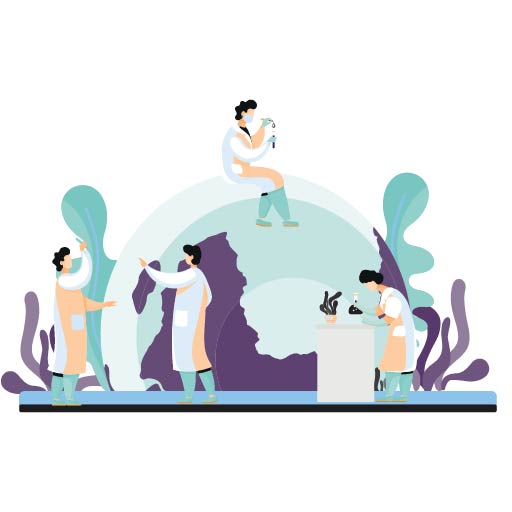University of British Columbia
About the University of British Columbia
The University of British Columbia (UBC) is renowned worldwide for its commitment to knowledge, innovation, and positive impact. With campuses in Vancouver and Kelowna, UBC provides a West Coast experience like no other. Our exceptional faculty, diverse student body, and breathtaking surroundings foster groundbreaking research and transformative learning experiences.

A brief history
The University of British Columbia (UBC) is a public research institution located in British Columbia, Canada, with campuses in close proximity to Vancouver and Kelowna. It was established in 1908 through provincial legislation. Prior to UBC’s establishment, higher education in British Columbia was primarily offered by denominational colleges affiliated with universities such as McMaster, Toronto, and McGill. One of these affiliated institutions, the Columbian Methodist College in New Westminster, was formed in 1892, focusing on Arts and Theology. The idea of creating a provincial university was proposed in 1877, six years after British Columbia became part of Canada. The legislative groundwork for the University of British Columbia was laid with the passage of the “An Act Respecting the University of British Columbia” in 1890. However, debates arose about its location, whether on Vancouver Island or the mainland. Ultimately, in 1910, a site at Point Grey was chosen for UBC’s Vancouver campus, but the outbreak of World War I delayed construction, and UBC commenced its operations at Fairview in 1915. The university permanently relocated to its Vancouver campus in 1925.
General information
The University of British Columbia (UBC) is a globally recognized institution known for its excellence in education and research, consistently ranking among the top 20 public universities worldwide. Established in 1908 by provincial legislation, UBC operates on two main campuses in Vancouver and the Okanagan region. UBC offers a diverse range of academic programs, boasts accomplished faculty, provides extensive research opportunities, offers state-of-the-art learning facilities, emphasizes an international perspective, and fosters a vibrant student community. The university has a substantial student body, with nearly 56,000 students at the Vancouver campus and an additional 9,000 at the Okanagan campus, including over 19,000 international students representing 156 countries. UBC comprises faculties spanning applied science, arts, creative and critical studies, dentistry, education, forestry, graduate studies, health and social development, land and food systems, law, management, medicine, pharmaceutical sciences, and science. Its academic curriculum is rigorous and known for its competitiveness in coursework and grading. In the QS World University Rankings for 2023, UBC is ranked 47th.


Quick facts about Kyoto
- Established in 1908 through provincial legislation, UBC maintains two major campuses in Vancouver and the Okanagan.
- The university boasts a sizable student population, with approximately 56,000 students in Vancouver and 9,000 in the Okanagan, including over 19,000 international students from 156 countries.
- UBC offers a diverse range of academic programs, features accomplished faculty, provides ample research opportunities, offers world-class learning facilities, emphasizes an international outlook, and cultivates a lively student community.
- The academic curriculum at UBC is rigorous, characterized by competitive coursework and grading.
- UBC holds the 47th position in the QS World University Rankings for 2023.
- The university occupies a 1,000-acre campus, with a section designated for a botanical garden.
- UBC allocates an annual research budget of $759 million, supporting over 8,000 research projects annually.
Download our Successful College Application Guide
Our Guide is written by counselors from Cambridge University for colleges like MIT and other Ivy League colleges.
To join our college counseling program, call at +918825012255

FAQs
- UBC offers 15 residences housing over 13,000 students.
- Typical cost for room and meal plan for new undergraduates: $12,000–$14,500 per year.
- Fees range from $10,300 to just over $15,000.
- UBC offers over $30 million annually in awards and scholarships.
- International Major Entrance Scholarships (IMES) for exceptional incoming students.
- Four prestigious need-and-merit-based awards through the International Scholars Program.
- Awards of $5,000 each for continuing international undergraduate students.
- Costs depend on your origin and are influenced by the city’s livability.
- UBC provides a living cost calculator.
- Estimated expenses for exchange students: $6,900 to $14,500 CAD per term.
- On-campus housing: $3,600 to $6,300 CAD per term.
- UBC housing early bird deadline: Early May 2023.
- Offer of admission acceptance deadline: May 1, 2023.
- Other deadlines include study permits, final transcripts, loans, and A-Level results.
- UBC offers over $30 million in financial support.
- International Scholars Program for prestigious awards.
- Support services: academic advising, career services, health, and wellness.
- Tuition fee for international undergraduates (2023/24): $44,942.40 CAD per year.
- Fees are calculated per credit and reviewed annually.
- Fees vary by residence area and room type.
- Winter Session residence fees: $1,941.75 to $7,598.50 CAD per term.
- Year Round residence fees: $3,531.00 to $5,735.50 CAD per term.
- Payments made directly to UBC Student Housing. A deposit or first installment is required upon offer acceptance.
Popular Courses

Bachelor of Science in Computer Science
This program provides students with a solid foundation in computer science and software development. Students will learn about algorithms, data structures, programming languages, and software engineering. Graduates of this program can pursue careers in software development, data analysis, and computer systems design.

Bachelor of Arts in Psychology
This program explores the scientific study of human behavior and mental processes. Students will learn about topics such as perception, cognition, personality, social behavior, and abnormal psychology. Graduates of this program can pursue careers in counseling, social work, human resources, and research.

Bachelor of Commerce
This program provides students with a comprehensive understanding of business principles and practices. Students will learn about accounting, finance, marketing, operations management, and organizational behavior. Graduates of this program can pursue careers in finance, marketing, consulting, and entrepreneurship.

Bachelor of Applied Science in Engineering
This program prepares students for careers in engineering, with a focus on practical applications of engineering principles. Students will learn about topics such as mechanics, materials science, thermodynamics, and electrical circuits. Graduates of this program can pursue careers in fields such as aerospace, civil, electrical, and mechanical engineering.

Bachelor of Fine Arts in Visual Art
This program provides students with a foundation in the visual arts, including painting, drawing, sculpture, and digital media. Students will develop their artistic skills and learn about art history and theory. Graduates of this program can pursue careers as artists, art educators, or in art-related fields such as museum curation.

Bachelor of Science in Environmental Science
This program explores the scientific study of the environment, including ecology, conservation biology, and environmental policy. Students will learn about topics such as climate change, biodiversity, and sustainability. Graduates of this program can pursue careers in environmental consulting, conservation, or research.
Find the Japan university that best suits you!
Use Tychr Japan University Admissions Calculator to generate a list of recommended universities that are the best fit for you.
Eligibility Criteria
Academic Performance:
- GPA: 3.7
- IB Score: 37
- Percentage: 80%
English Language Proficiency:
- IELTS: 6.5
- TOEFL: 90
Standardized Test Scores:
- SAT: 1600
- ACT: 25
- GRE: 310
- GMAT: 550
- GRE Quantitative: 155
- GRE Verbal: 155
Fee Structure
- Tuition fees for undergraduate students at UBC are calculated per credit and are checked every year by the Board of Governors.
- For the 2023/24 academic year, international undergraduate students will pay $54,367.50 CAD annually. This roughly equals $43,496.18 USD as of September 1, 2023.
- In recent years, tuition increases have been 2% for domestic students continuing their studies, while continuing international students have experienced increases ranging from 2% to 5%.
- Besides tuition, there may be other fees, such as student fees, program fees, and continuation fees.
- New international undergraduate students must submit a non-refundable acceptance deposit of $1,000.00 CAD, which will be deducted from their assessed tuition fees.

Admission Deadlines
- Early October 2023: UBC application opens
- November 15, 2023: Deadline for UBC scholarship and awards application
- December 1, 2023: Deadline for UBC scholarship and awards application
Notable alumni







